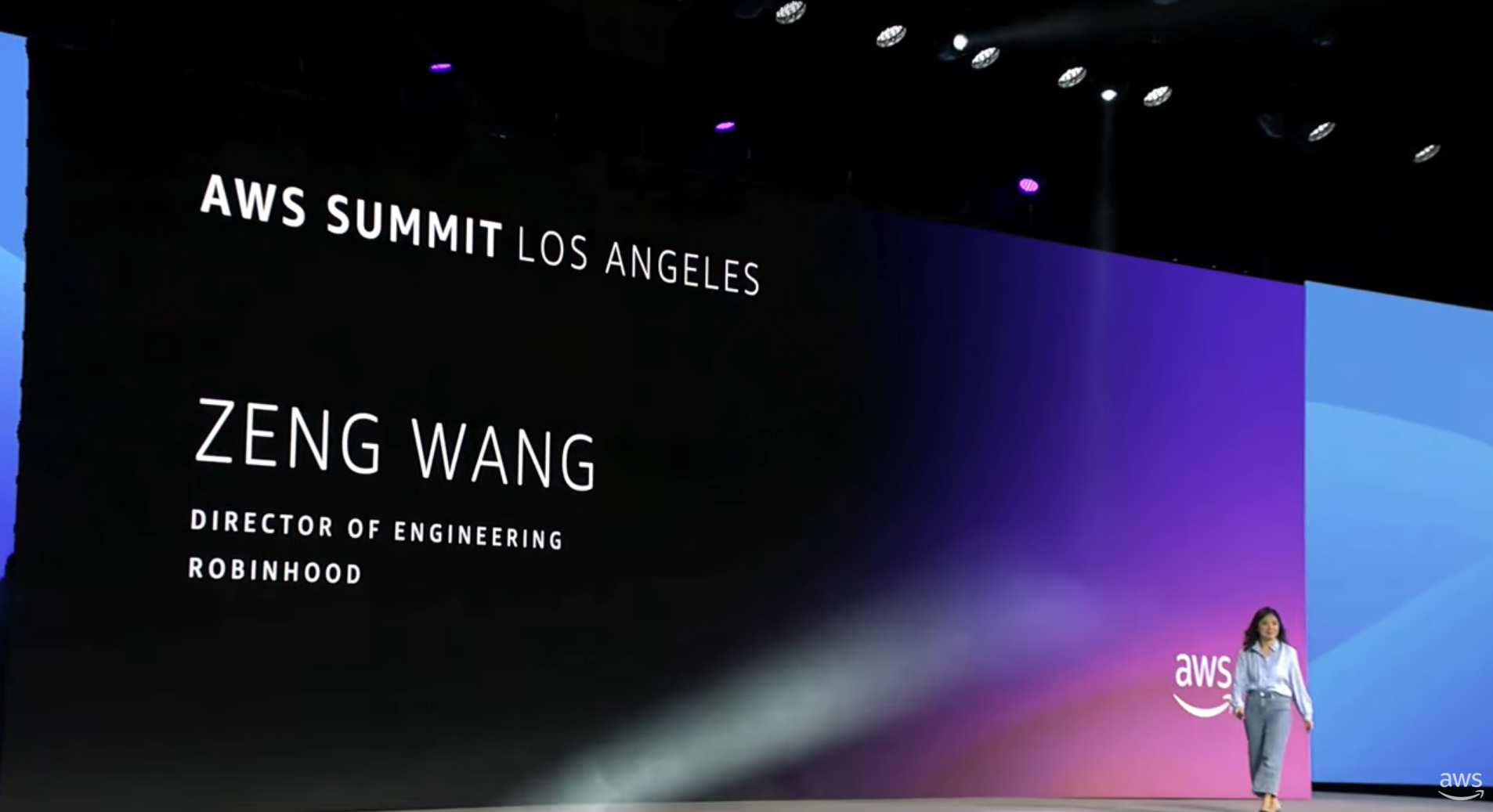Robinhood's keynote at AWS Summit Los Angeles 2025
Zeng Wang, Director of Engineering at Robinhood, shares how the fintech innovator is transforming financial services with AI tools from AWS.

How the NFL and AWS reimagined the Combine and Draft Experience for fans
NFL used Amazon QuickSight and Amazon Q Business to launch interactive dashboards and a conversational chatbot to give fans unprecedented access to the analytics that power the NFL Scouting Combine and NFL Draft.

Featured Case Studies across industries
Benefits
1,000,000+
of active customers every month.330,000+
startups have used AWS to bring their ideas to life.Browse customer stories
Loading
Loading
Loading
Loading
Loading
Did you find what you were looking for today?
Let us know so we can improve the quality of the content on our pages